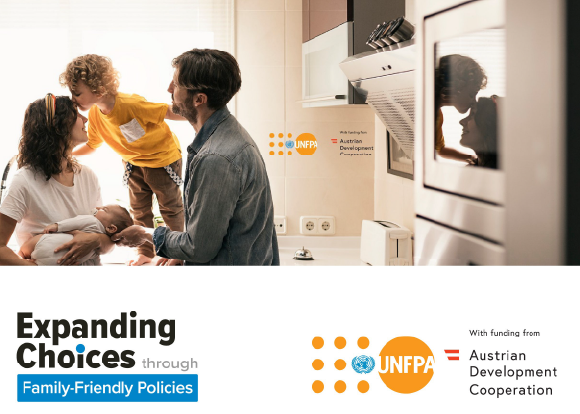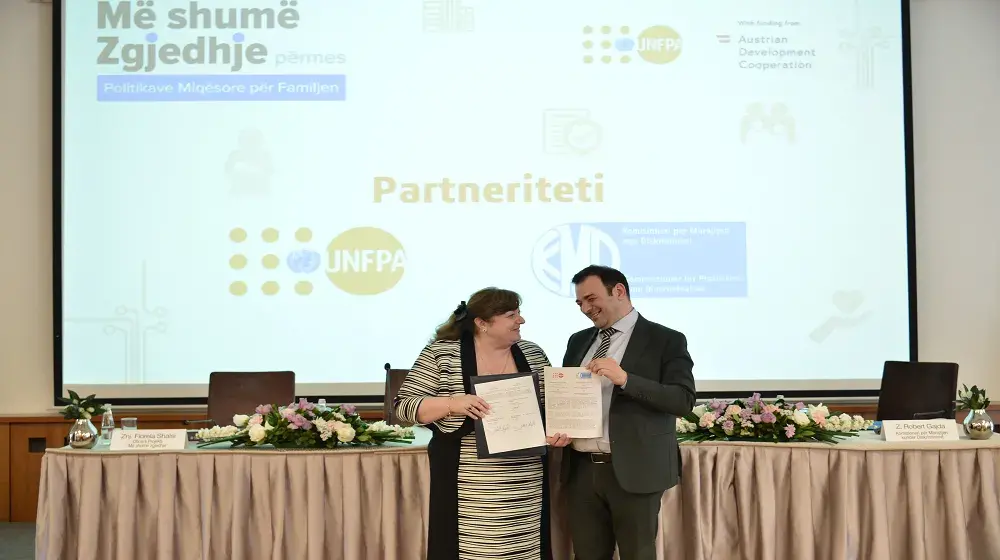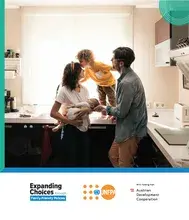
A four-member family stands in the kitchen of their home.
When the time comes to create a family and give birth to children, many women continue to face the challenge to choose between a career and family? The combination of the two priorities is very challenging, especially when kindergarten or public care for children is not possible, parental leave is limited, and working flexible hours are rarely applied. The result is many women give birth to fewer children than they want or that give up their careers due to the impossibility to commit to all these.
Both these outcomes produce a negative result: not only women are left with fewer choices, but society suffers the consequences of not having half of the workforce engaged. If hundreds of women, against their will, are obliged to give up their careers to take care of their children or other members of the family in their homes, their talent and all contribution coming from it will not be used in economic growth and public life. Meanwhile, hundreds of women will not bear many children, as they think this will prevent them from their careers, while this will become a factor in reducing the number of births in the country and will increase pressure on the population already declining in Albania.
For this reason, UNFPA with the support of the Austrian Development Agency (ADA), is engaged and working with the private sector and other partners to promote family-friendly policies in the workplace, through expanding choices for women, girls, and young couples. Facts show that application of family-friendly policies have the power to help overcome gender discrimination, while re-dimensioning supportive policies for unpaid work and care at home, enabling men and women to realize their aspirations for career and family life.
Expanding choices is implemented by UNFPA Albania with the support of the Austrian Development Cooperation (ADC). The initiative has partnered with the private sector to pilot and promote family-friendly policies at the workplace, to improve the working environment, and promote gender equality, where both parties benefit, employers and employees. The initiative also attempts to advocate with policymakers to improve policies related to the work environment, that support families, and promote gender equality and equal distribution of responsibilities for unpaid care. It is also dedicated to ending gender stereotypes with negative effects, expanding opportunities and choices for women, and increasing the active role of men to take on more responsibilities for housework and home care. The collection of data and facts to advocate and promote positive models is another important element of the intervention implemented in partnership with our partners IDRA Research & Consulting, DM Consulting Services, the Women's Economic Chamber, the Office of the Commissioner for Anti-Discrimination, and 7 private sector companies: AGNA Group, INCA, Lufra, R&T Group, Raiffeisen Bank Albania, FIX Pro, Euronews Albania.





